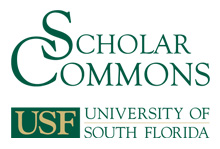Content Language
EN
Abstract
This article explores how, like other science fiction and fantasy novels, Typescript of the Second Origin relates to 1970s counterculture, radical politics and anti-establishment movements. Pedrolo, a leftist and pro-independence strongly committed author, echoes the radical left’s breakaway from the bourgeois reactionary way of life and consumer society in the novel. The beginning of a post-apocalyptic era in the novel stands for some of the values attached to hippie culture: the search for an ‘authentic’ —natural, primitive, non-technological— life; anti-establishment activity —as shown in self-organisation and the dissolution of the political system—, universal solidarity —the first member of the new humankind is Mar, Alba and Dídac’s mixed-race son—, as well as sexual liberation —Mar’s parents are teenagers and sensuality and eroticism permeate the novel. However, the violent origin of the new era is ambivalent: whereas in other novels peaceful resistance to oppression brings about social change, the author’s stark message seems now that humankind must succumb to create a different world. Thus, the story resonates with the debate within counterculture and radical groups of the 1970s as whether the use of violence is legitimate or not to resist power. Despite violence, Pedrolo’s story depicts a melancholic feeling for change that the transition to democracy thwarted.
DOI
http://dx.doi.org/10.5038/2167-6577.4.2.2
Creative Commons License

This work is licensed under a Creative Commons Attribution-Noncommercial 4.0 License
Custom Sort Order
02
Recommended Citation
Maestre-Brotons, Antoni
(2017)
""Typescript of the Second Origin". Counterculture and Politics in the 1970s'.,"
Alambique. Revista académica de ciencia ficción y fantasía / Jornal acadêmico de ficção científica e fantasía: Vol. 4
:
Iss.
2
, Article 1.
http://dx.doi.org/10.5038/2167-6577.4.2.2
Available at:
https://digitalcommons.usf.edu/alambique/vol4/iss2/1
Included in
European Languages and Societies Commons, Other Spanish and Portuguese Language and Literature Commons
